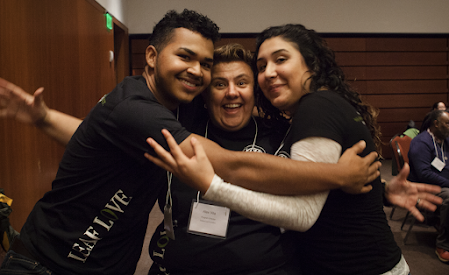By Sam Piha
 |
| Reed Larson and Natalie Rusk |
Program Design and Culture - The program culture is dependent on values that are represented by the program and constantly reinforced by its leaders. The program design is fully aligned with these values, from a program culture in which SEL skills are both taught and “caught.”
- Design programs to provide environments of trust, safety, and mutual caring.
- Cultivate a program culture where youth are respected and supported as active agents
- of their learning, including their emotional learning. Recognize how they learn through feeling, noticing, describing, managing, and reflecting.
- Provide opportunities for youth to talk about emotions and share strategies for managing and using emotions.
- Structure programs to engage teens in meaningful projects. These provide authentic experiences of learning to manage and use emotions in work youth care about.
- Recognize that people from different cultural backgrounds may have different experiences, values, and strategies for handling emotions.
Staff Practices - These are done by all adult workers within the program. They are explicitly expected of all staff and are aligned with how staff are evaluated.
- Acknowledge youth’s emotions and be ready to talk about them.
- Encourage youth to view emotions as signals to pay attention to and interpret, to examine the causes and effects of emotions and learn from peers and support each other’s emotional learning.
- Help youth view emotional situations from different perspectives.
- When appropriate, offer strategies that youth might try for managing emotions.
- Encourage youth to reflect on the usefulness of emotions, for example, for motivating
- work, evaluating situations, cultivating relationships, and ethical learning.
- Support youth as they develop standards and criteria for feeling satisfaction or pride in their work.
- Recognize that staff are valuable emotional models for youth.
Organizational Practices - These are things that the organization, not individual youth workers, are responsible for. These often come in the form of policies and formal agreements.
- Provide resources and support for staff to develop their skills for facilitating youth’s emotional learning.
- Arrange regular time and support for staff members to process and discuss unfolding emotion-related issues in the program (e.g., issues in youth projects, youth’s reactions to a situation, and staff’s self-care needs.)
- Encourage and invest in research on emotional learning in adolescence, especially applied research on staff practices and youth’s emotional learning in programs.






No comments:
Post a Comment